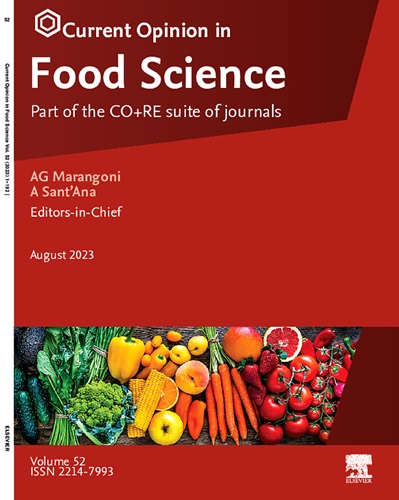Safety assessment of botanicals: cutting through complexity
IF 9.1
1区 农林科学
Q1 FOOD SCIENCE & TECHNOLOGY
引用次数: 0
Abstract
Botanical products are widely used in food supplements, traditional herbal medicines, and pharmaceuticals. Although their popularity has grown significantly in recent years, they remain associated with various challenges, such as regulatory hurdles and the inherent complexity of their natural origin. This complexity, in conjunction with misconceptions about the safety of natural products, creates a multifaceted issue for both consumers and regulators. Environmental factors, processing methods, and plant chemodiversity contribute to the unstandardized composition of botanicals, making quality control and safety assessment particularly difficult.
However, advancements in metabolomics, bioinformatics, and novel toxicological approaches provide promising tools for assessing their bioactivity and safety. Despite these innovations, regulatory frameworks have struggled to keep pace. Stricter oversight, potential reclassification of certain botanicals as over-the-counter medicines, and the implementation of proper awareness campaigns are necessary to protect public health as the demand for botanical-based products continues to rise.
植物药的安全性评估:消除复杂性
植物产品广泛用于食品补充剂、传统草药和药品。尽管近年来它们的受欢迎程度显著提高,但它们仍然面临各种挑战,例如监管障碍和天然来源的固有复杂性。这种复杂性,再加上对天然产品安全性的误解,给消费者和监管机构都带来了一个多方面的问题。环境因素、加工方法和植物化学多样性导致植物药成分不标准化,使质量控制和安全评估特别困难。然而,代谢组学、生物信息学和新型毒理学方法的进步为评估它们的生物活性和安全性提供了有前途的工具。尽管有这些创新,监管框架仍难以跟上步伐。随着对植物类产品的需求不断增加,有必要加强监督,可能将某些植物药重新分类为非处方药,并开展适当的宣传运动,以保护公众健康。
本文章由计算机程序翻译,如有差异,请以英文原文为准。
求助全文
约1分钟内获得全文
求助全文
来源期刊

Current Opinion in Food Science
Agricultural and Biological Sciences-Food Science
CiteScore
18.40
自引率
4.00%
发文量
157
审稿时长
92 days
期刊介绍:
Current Opinion in Food Science specifically provides expert views on current advances in food science in a clear and readable format. It also evaluates the most noteworthy papers from original publications, annotated by experts.
Key Features:
Expert Views on Current Advances: Clear and readable insights from experts in the field regarding current advances in food science.
Evaluation of Noteworthy Papers: Annotated evaluations of the most interesting papers from the extensive array of original publications.
Themed Sections: The subject of food science is divided into themed sections, each reviewed once a year.
 求助内容:
求助内容: 应助结果提醒方式:
应助结果提醒方式:


